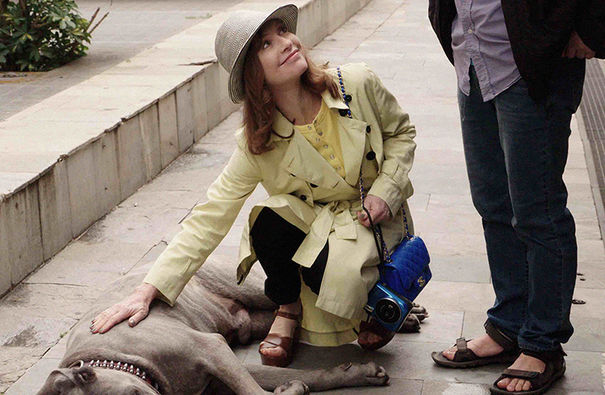Sang-soo, the unshaken
By Alexandra João Martins

Claire`s Camera
In Claire’s Camera, the Korean filmmaker continues a process of stylistic refinement.
"If I take your picture, you won’t be the same person anymore", a French teacher says to a Korean visitor at a restaurant in Cannes, southern France. This is Claire’s Camera central theme. The Korean director Hong Sang-soo recaptures this old idea that photography, and cinema, by extension, steals people's souls. And if it doesn’t, it will, at the very least, change it.
That is why So Wansoo, the visitor, after being photographed by the French teacher, will confess to his partner that he no longer loves her. That is why Manhee, a film producer also photographed by Claire, remains confident after being fired.
Filled with metalinguistic references, the film presents characters who work in the film industry. Claire, the teacher, is the exception and this is no accident, since she seems to be the only person who, amateurishly, captures and edits reality to give herself a new direction. It is ironic that a character outside the industry fulfills the core purpose of cinema itself.
The film recovers other elements present in the filmmaker’s works: pure chance as an engine for overlapping micro-stories, the beach as a place for reflection, and restaurants, alcohol, bohemia and cigarettes as a place of destabilization. All this bathed with love and heartaches and a shot of frank irony.
On the formal frame, a pastel chromatic palette, the combined lateral frames and the zoom, which show what the sound had previously indicated, reveal Sang-soo's undisturbed style. For all this, there are those who accuse him of always making the same film.
But it is not this unique, albeit differential, way of creating that makes great artists great? Regardless of the answer, Claire’s Camera is coherently inscribed in a stylistic refinement process characteristic of the director. In film history, we will know that a Sang-soo movie is a Sang-soo, as, today, we only need a single plane to recognize an Ozu.

